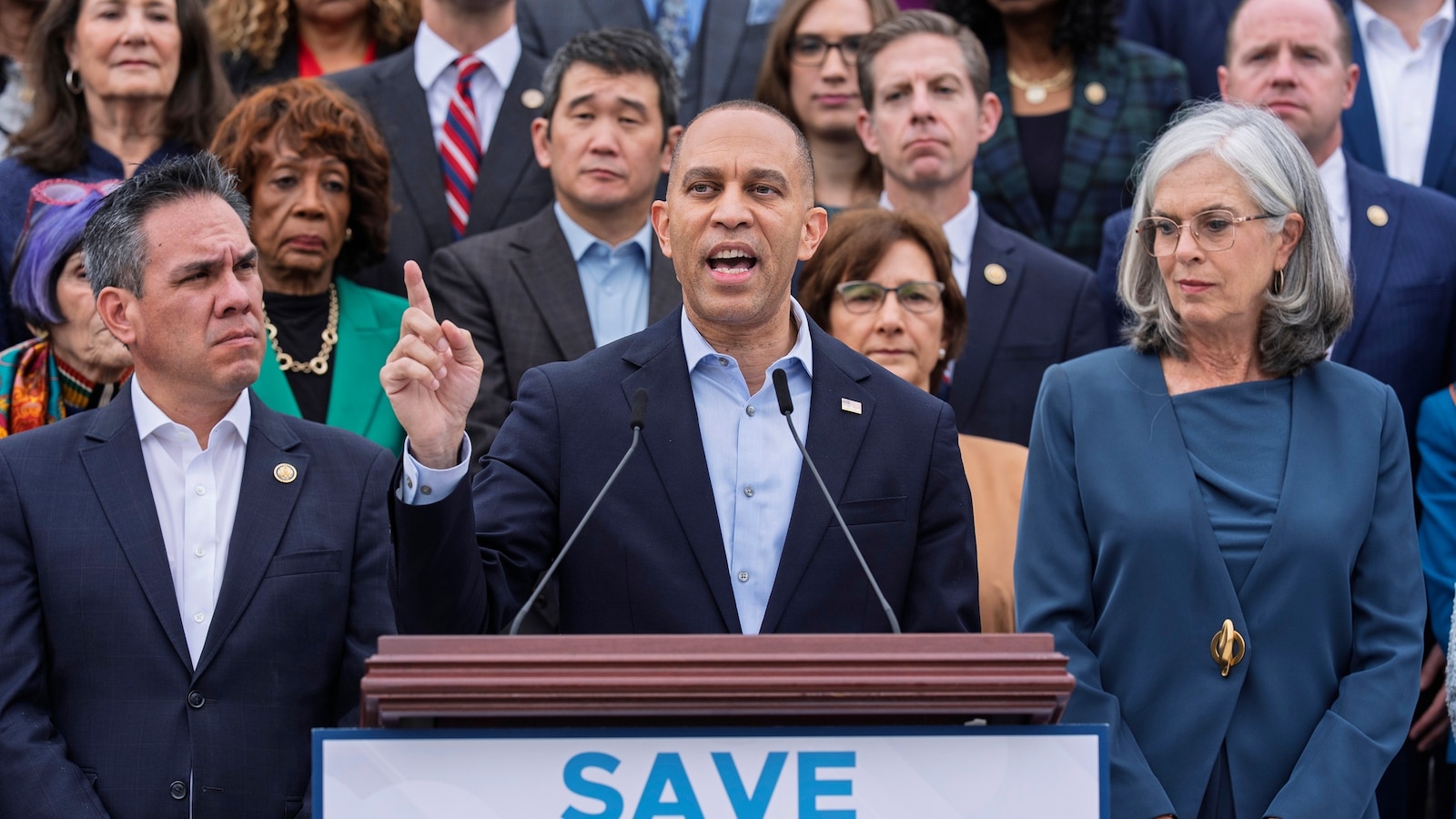Looming Government Shutdown: The Blame Game Intensifies
As of September 30, 2025, with federal funding set to expire at 12:01 a.m. on October 1, Congress is on the brink of its first government shutdown in over six years. Congressional leaders from both parties are locked in a fierce partisan standoff, trading accusations in public statements, social media posts, and high-stakes White House meetings. Despite a Monday afternoon session at the White House with President Donald Trump and the “Big Four” leaders—House Speaker Mike Johnson (R-LA), Senate Majority Leader John Thune (R-SD), Senate Minority Leader Chuck Schumer (D-NY), and House Minority Leader Hakeem Jeffries (D-NY)—no progress was made, leaving essential services, federal workers, and the economy hanging in the balance.
Key Sticking Points in Negotiations
The impasse centers on a short-term funding bill (a continuing resolution, or CR) to extend government operations into November while full appropriations are finalized. Republicans passed a “clean” seven-week CR in the House, but it stalled in the Senate due to Democratic opposition. Democrats are demanding concessions in exchange for their votes, including:
- Reversing Medicaid cuts: Enacted earlier this year in the GOP’s major tax and spending package, these reductions are seen by Democrats as an “assault on health care” for low-income Americans.
- Extending Obamacare subsidies: Pandemic-era tax credits for Affordable Care Act premiums are set to expire, potentially causing millions to lose coverage and premiums to spike.
- Limits on executive overreach: Democrats want restrictions on the president’s ability to unilaterally rescind or “impound” congressionally approved funds, citing recent actions like the $9.4 billion in cuts to foreign aid and public broadcasting, plus $4.9 billion in “pocket rescissions” in August.
Republicans, backed by Trump, view these as “unreasonable” and “radical” demands, insisting on a simple extension without policy riders. Trump has publicly called the requests “unserious and ridiculous,” initially canceling a bipartisan meeting before relenting on Monday.
The Blame Game: Who’s Pointing Fingers?
Both sides are aggressively shaping the narrative to pin responsibility on their opponents, with public polls suggesting Republicans could bear more fallout due to their control of the White House, House, and Senate.
| Party | Key Accusations | Notable Quotes/Examples |
|---|---|---|
| Republicans | Democrats are “hostage-taking” with extreme demands, prioritizing “far-left” policies like funding for “illegal immigrants’ health care” over basic government functions. They warn of chaos like unpaid troops, delayed food assistance (e.g., WIC), offline FEMA during hurricane season, and furloughed TSA agents. | – Speaker Johnson: “Democrats would rather shut down the government than stop states from paying for free health care for illegal immigrants.” – VP JD Vance: “We’re headed to a shutdown because Democrats won’t do the right thing.” – Trump (on Truth Social): Posted an AI-generated video mocking Schumer and Jeffries as clowns, captioned to imply Democrats are forcing the closure. |
| Democrats | Republicans, with full control of government, are refusing bipartisanship and using the shutdown as a distraction from scandals (e.g., Epstein files). They argue any lapse is a “Republican shutdown” that hurts everyday Americans, especially on health care. | – Schumer: “It’s now in the president’s hands. He can avoid a shutdown if he gets the Republican leaders to go along with what we want.” – Jeffries: Shared a 1997 photo of Trump with Jeffrey Epstein, writing “This is real” to counter GOP attacks. – Rep. Jasmine Crockett (D-TX): “Republicans only know how to break shit & then deflect & deny any accountability.” |
Public sentiment on X (formerly Twitter) mirrors this divide, with users like @JasmineForUS highlighting “Real Math” (GOP control) to blame Republicans, while others like @SpeakerJohnson amplify shutdown consequences to target Democrats. Early polling from CNN indicates that even if Democrats vote against a CR over health care issues, 35% of Americans would still blame Republicans versus 24% for Democrats— a warning echoed by Trump’s own pollster, who urged extending subsidies to avoid electoral damage in swing districts.
Potential Impacts of a Shutdown
If no deal is reached by midnight:
- Federal workers: Up to 2 million could be furloughed without pay (though backpay is eventual).
- Services: National parks close, IRS tax refunds delay, and food safety inspections halt. Essential functions like air traffic control continue, but with reduced staffing.
- Economy: Past shutdowns cost billions; this one could exacerbate inflation and disrupt markets amid ongoing recovery.
- Duration: Short shutdowns (days) are recoverable, but prolonged ones amplify pain—Democrats hope public “heat” forces GOP concessions, while Republicans bet on voter backlash against Democratic “obstruction.”
Trump has signaled he’s prepared for a shutdown, telling reporters he expects one and framing it as Democrats’ fault. Schumer, however, predicted Republicans would “quickly come back” once impacts hit. With the Senate convening at 10 a.m. and the House at noon today, a last-minute vote remains possible—but optimism is low. This isn’t just about funding; it’s a test of Trump’s second-term leverage and the GOP’s unity, with Democrats leveraging the blame game to protect vulnerable programs. As the clock ticks, all eyes are on whether cooler heads prevail or if Washington grinds to a halt.
